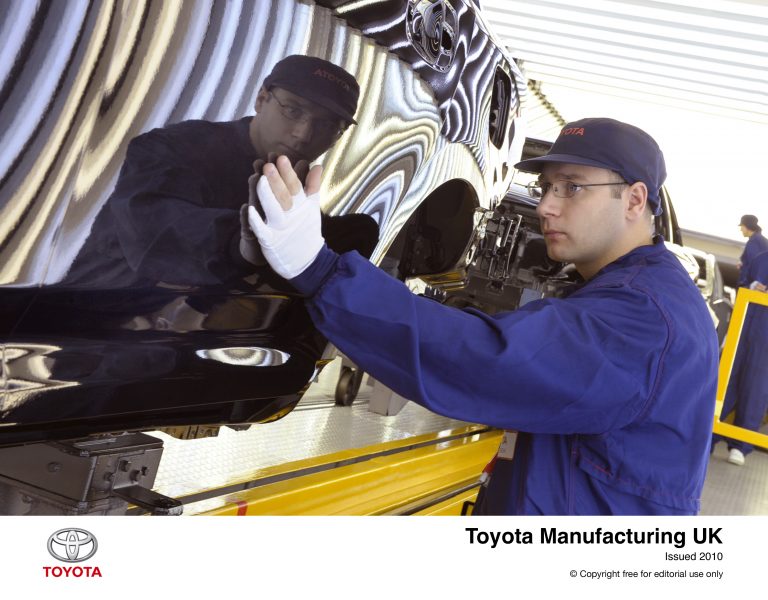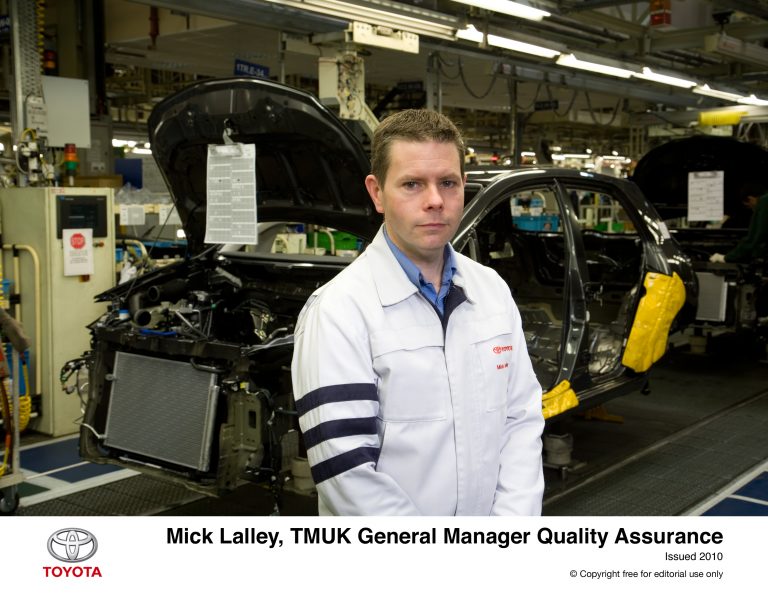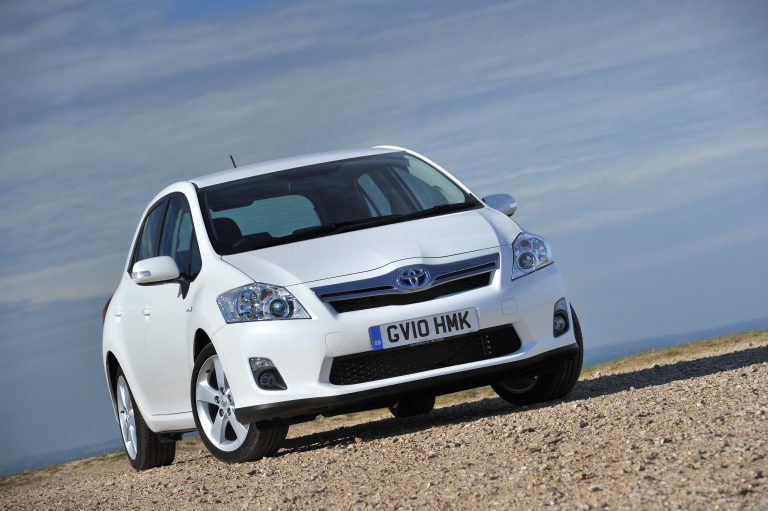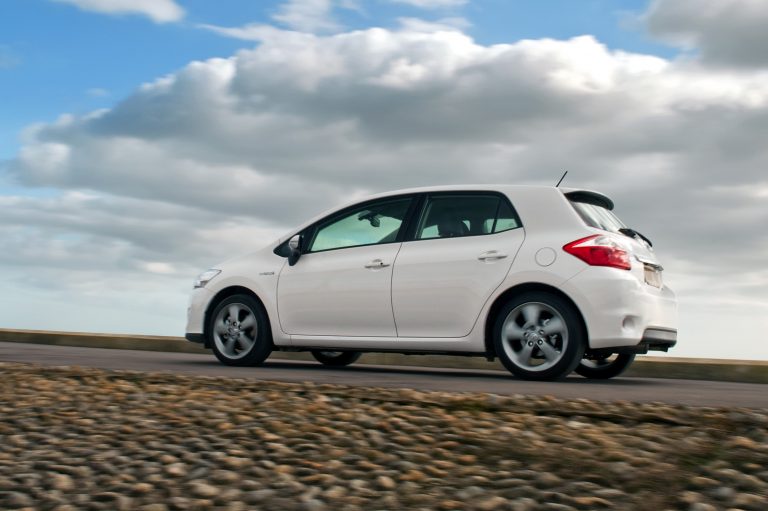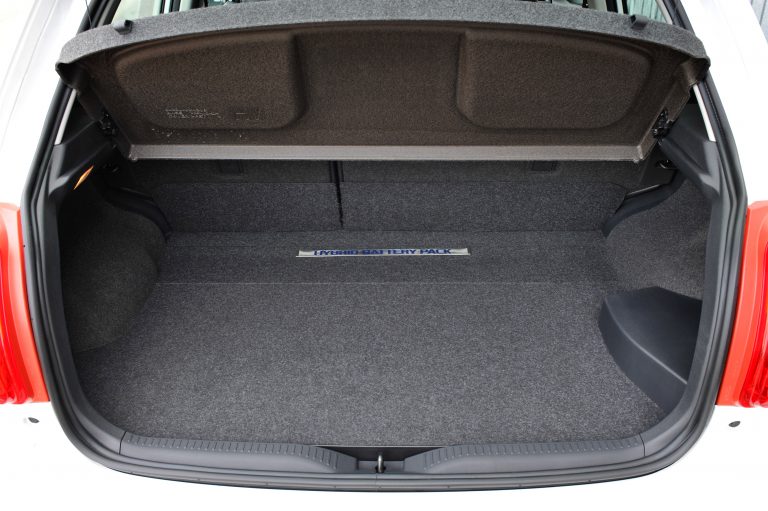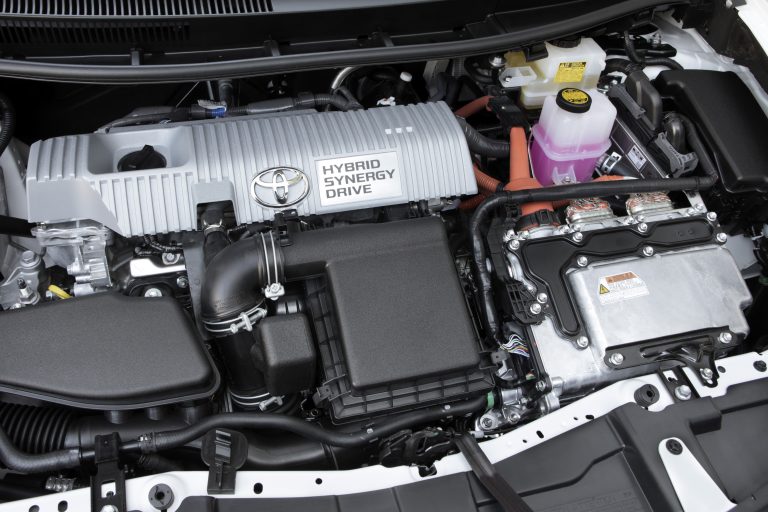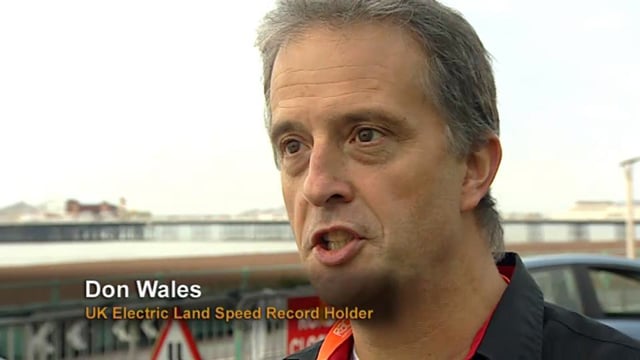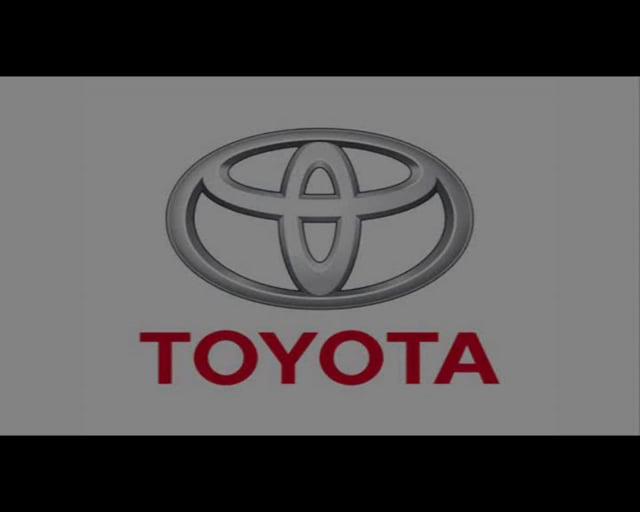Toyota Auris Hybrid Production: Quality First and Foremost
Quality has never before been such an important consideration for car buyers and it is an issue Toyota has fully addressed in all areas of production of its new, British-built Auris Hybrid.
Ensuring the new model – the first volume hybrid car ever to be manufactured in Europe – meets Toyota’s rigorous quality standards was of paramount importance throughout its progress from design studio concept through to full production. At TMUK’s Burnaston car factory in Derbyshire, and Deeside engine plant in North Wales, the teams were closely involved in identifying and implementing new quality processes and systems from an early stage, to help guarantee that the best possible product is delivered to the customer.
Mick Lalley, TMUK General Manager Quality Assurance, explained: “We operate on three fundamental quality principles – that the customer decides the quality standard, quality is built in at every stage of the manufacturing process, and we kaizen, or continuously improve, those processes every day.”
One of the key elements in the Toyota Production System, operated by TMUK and all other Toyota factories around the world, is that every worker understands what level of quality they are expected to achieve. Should they detect any fault or problem, they have an individual responsibility to raise an alert by pulling on the andon, acord that runs the length of the assembly line, to halt production until the issue is checked and put right. This helps prevent any faults passing through to the end of line and to the customer.
To handle the particular demands of full hybrid vehicle manufacturing, TMUK has established new quality testing procedures at both Deeside and Burnaston, covering areas specific to hybrid operation, including handling of the high voltage battery and its connections, and the performance of the car in its different driving modes. Both the vehicle test track at Burnaston and the engine testing section at Deeside have undergone changes to meet the requirements of Auris Hybrid and the 1.8 VVT-i petrol engine in its Hybrid Synergy Drive powertrain.
“We ensure the vehicle is driven in every environment the customer might face. It means we can detect any problem and, more importantly, fix it before it becomes an issue for the customer,” said Mick Lalley.
The fact that Auris Hybrid runs silently in its EV (electric vehicle) mode has made any unwanted squeaks and rattles, or unusual interior noise, easier to detect and put right. As well as ensuring top quality in the hybrid, this has also helped improve the quality of the petrol and diesel-powered Auris models, too, where noise from the engine can mask such sounds.
The drive to ensure the highest possible quality goes beyond the Toyota plants themselves to its community of components and systems suppliers. Mick Lalley added: “One way we do this is to very specifically define the quality standard that we want them to supply to and then work with them in partnership to make sure they achieve that standard.”
The new Toyota Auris Hybrid goes on sale in the UK on 1 July.
ENDS


